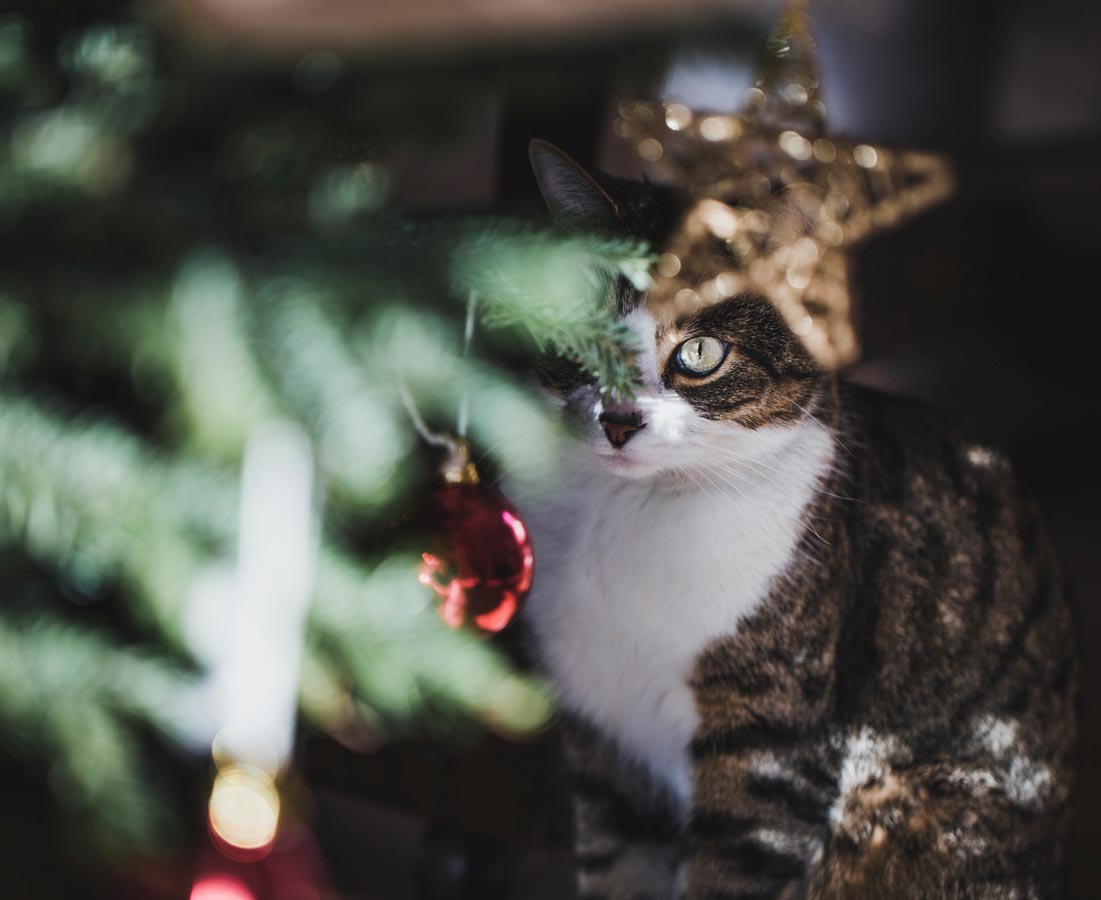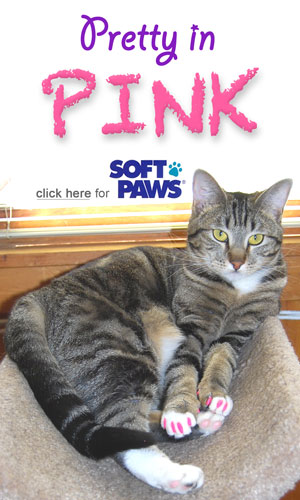- Home
- Cats and Christmas Trees: How to End the Love Affair

Cats and Christmas Trees: How to End the Love Affair

It's no secret in the world of pet owners: Cats love Christmas trees. They like to scratch them, climb them, bat at things attached to them, and even chew on them.
We've gathered some great tips for keeping cats off Christmas trees along with reasons why you should.
Why Should Cats Be Kept off Christmas Trees?
The holiday tree can pose significant dangers to your cat, including:
- Broken ornaments caused by a kitty batting at and knocking them off the tree can cause cuts to delicate mouth and paws.
- Chewing tree needles often results in injuries to the mouth and toxicity when swallowed.
 A climbed tree can fall on a cat, injuring or killing her.
A climbed tree can fall on a cat, injuring or killing her.- Cats that chew electrical cords or light strings can be severely burned or electrocuted.
- Drinking water from the base of the tree can cause GI upset or toxicity because it often contains fertilizer, needles, and other debris.
- Tinsel is extremely dangerous for cats. When they are attracted to its shine and lick it, their barbed tongues carry it down their throats, where it can become lodged and cause a life-threatening intestinal obstruction.
Even the presents kept under the tree can be hazardous to your cat if they have ribbons or string on them because a curious cat might eat them and suffer a dangerous intestinal obstruction.
How Can You Keep Your Cat off the Christmas Tree?
Here are a few tips for teaching your cat not to bother the Christmas tree, so you can keep them both safe. You might need to use one or all of them depending on your kitty.
- Don't keep presents under the tree to tempt your cat.
- Don't use tinsel or anything similar to decorate the tree, in case your efforts to keep your cat away aren't successful and she eats it.
- Spray the tree needles with Bitter Apple Spray.
- Shake a can of half-filled with coins or make another loud noise if you see your cat about to mess with the tree.
- Consider a deterrent such as the ScatMat, which gives the kitty a small zap of static when she steps on it. Place one around the tree to deter her from going near it.
Additional deterrents for many cats include aluminum foil and citrus-scented sprays. Wrapping the tree's trunk in foil can keep many cats from attempting to climb up, and spritzing the tree with citrus-scented spray or placing orange or lemon peels around its base creates a nice scent for humans but often helps cats keep their distance.
- Make sure you give your cat something she can do nearby. A new cardboard box to play in, sprinkled with catnip, might make her happy enough to ignore the tree.
- Schedule regular interactive play sessions with your cat, so she's getting enough stimulation. A tired, happy kitty is much less likely to mess with the tree than a bored one.
- Cover the tree's water and barricade off cords as much as possible to make the tree safer to be around.
- Remove anything that could be used as a launching pad from near the tree's location. Furniture arms and end chairs provide extra height that cats often use to spring into the tree. Try to keep the area surrounding the Christmas tree free of such structures.
- Keep the tree well-watered, so it holds its needles better, and get rid of it when it becomes old enough that it starts dropping them all over.
- Attach the tree to the wall to make it less likely to fall on a cat that might climb up when you aren't around. If that isn't possible, create as steady of a base as you can, so if your cat does manage to climb the tree, it won't be likely to topple.
- Get your cat some new toys and bring them out one by one over the holiday season, so she always has something interesting to occupy her attention.

 Loading... Please wait...
Loading... Please wait...






